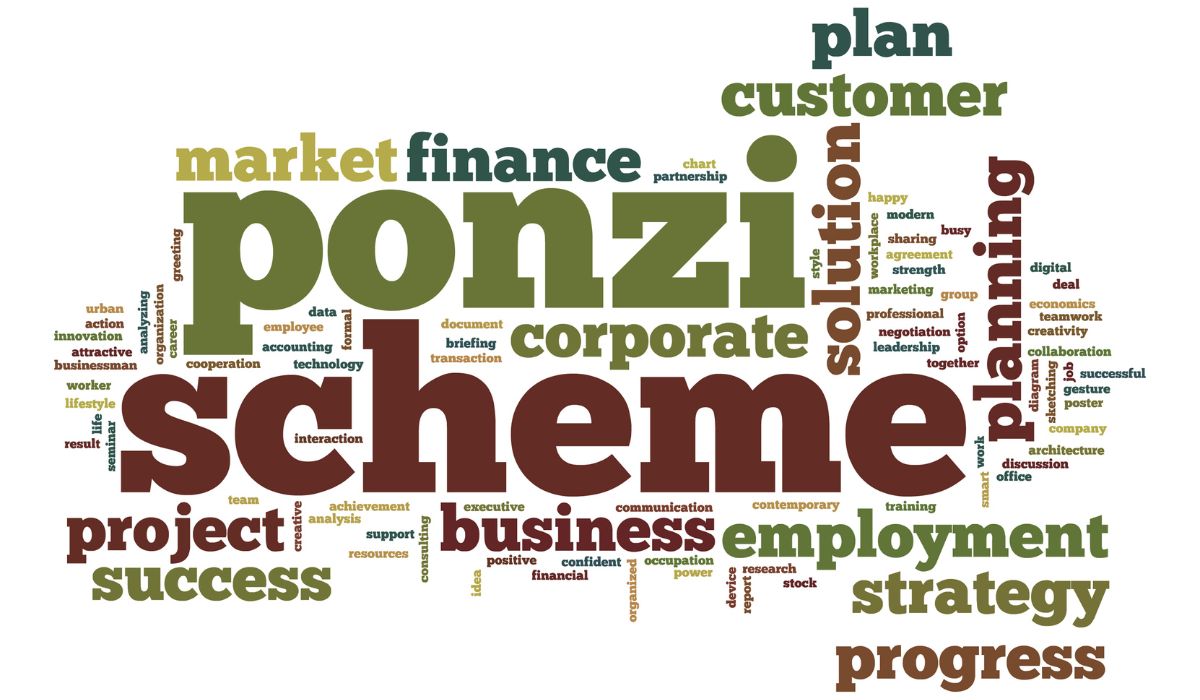Stay Safe from Forex Trading Scams: Tips to Avoid Fraudulent Schemes
The forex market, also known as the foreign exchange market, is a global decentralized marketplace where currencies are traded. With its immense size and round-the-clock operations, the forex market offers various opportunities for investors to engage in currency trading. However, along with the potential for profits, the forex market also attracts scams and fraudulent activities.
This article aims to shed light on the risks associated with the forex market and provide valuable information to help investors protect themselves from scams and fraudulent practices. By understanding the nature of forex scams and adopting preventive measures, investors can navigate the forex market with confidence and safeguard their investments.
Table of Contents
What are Forex Trading Scams?
Forex trading scams are fraudulent activities that occur within the forex market and aim to deceive investors for financial gain. These scams often involve misleading or false information, manipulation of trading results, and unethical practices that exploit the trust and lack of knowledge of investors.
Fraudsters may lure unsuspecting individuals with promises of high profits, guaranteed returns, or secret trading strategies. They may use various tactics such as fake investment opportunities, signal services, or automated trading systems to entice investors into depositing money into their accounts.
Once investors have deposited funds, scammers may engage in unethical practices such as manipulating trades, providing false trading results, or refusing to process withdrawals. These fraudulent activities can lead to significant financial losses for investors.
Investors need to be aware of forex trading scams and exercise caution when engaging in the forex market. By being informed and implementing preventive measures, investors can protect themselves from falling victim to such scams and preserve their investments.
Common Forex Trading Scams
Several common scams occur in the forex trading industry. It is essential to be aware of these scams to protect yourself from falling victim to fraudulent activities. Some of the most prevalent forex trading scams include:
Ponzi Schemes
Ponzi schemes involve fraudsters collecting funds from new investors and using those funds to pay returns to earlier investors. The scam creates an illusion of profitable trading but is unsustainable in the long run.
Signal Provider Fraud
Signal providers claim to offer accurate and profitable trading signals to traders for a fee. However, some scammers may provide false or manipulated signals to deceive traders into making losing trades.
Fake Investment Opportunities
Fraudsters may create fake investment firms or websites, promising high returns and low risks in forex trading. They lure investors with false testimonials, impressive track records, and persuasive marketing tactics.
Fake Forex Brokers
Scammers may pose as legitimate forex brokers, enticing traders with attractive trading conditions and bonuses. However, these brokers may engage in unfair practices such as manipulating prices, delaying withdrawals, or refusing to honor profitable trades.
Robot and Automated Trading Scams
Some scammers market automated trading systems or forex robots that claim to generate substantial profits with minimal effort. However, these systems often fail to deliver the promised results and may cause significant losses.
These scams typically target inexperienced or gullible traders who are seeking quick profits in the forex market. It is crucial to be vigilant and skeptical of any investment opportunity that sounds too good to be true. Conduct thorough research, verify the credentials of brokers or signal providers, and seek advice from reputable sources before engaging in forex trading activities.
Warning Signs and Red Flags

When engaging in forex trading or considering investment opportunities, it is important to be able to identify warning signs and red flags that may indicate a potential forex trading scam. Here are some common indicators to watch out for:
- Guaranteed High Returns: Be cautious of any investment opportunity that promises consistently high returns with little or no risk. Forex trading, like any other form of investment, carries inherent risks, and no one can guarantee profitable returns.
- Unsolicited Investment Offers: Be wary of unsolicited emails, phone calls, or social media messages offering forex trading opportunities. Legitimate investment opportunities are typically not promoted through unsolicited communication.
- Unregulated Brokers: Check if the forex broker you are considering is properly regulated by a reputable financial authority. Unregulated brokers may engage in fraudulent activities and offer inadequate protection for your funds.
- Pressure to Invest Quickly: Scammers often use high-pressure tactics to rush you into making investment decisions without giving you enough time to conduct proper due diligence. Legitimate brokers and investment providers will give you the time and information you need to make an informed decision.
- Unrealistic Promises: Be skeptical of claims that seem too good to be true, such as guaranteed profits or secret trading strategies that always win. Forex trading involves risks, and no strategy can guarantee consistent profits.
- Misleading Marketing Tactics: Watch out for misleading or manipulative marketing tactics, such as fake testimonials, altered account statements, or exaggerated success stories. Scammers may use these tactics to create a false sense of credibility.
It is important to conduct thorough research, verify the credentials of brokers or investment providers, and seek advice from trusted financial professionals before engaging in forex trading activities. Trust your instincts, be skeptical of overly optimistic claims, and remember that legitimate trading involves risks and requires careful decision-making.
Research and Due Diligence
Before engaging in forex trading, it is crucial to conduct thorough research and due diligence to ensure the credibility and legitimacy of the brokers and investment opportunities. Here are some strategies to help you in the process:
Regulatory Compliance
Check if the forex broker you are considering is regulated by a reputable financial authority. Regulatory bodies, such as the Financial Conduct Authority (FCA) in the UK or the Securities and Exchange Commission (SEC) in the United States, impose certain standards and regulations on brokers to protect investors. Verify the broker’s regulatory status and look for any disciplinary actions or complaints against them.
Reputation and Reviews
Research the reputation of the forex broker or investment platform. Look for independent reviews, testimonials, and feedback from other traders. Consider joining online forex trading communities and forums to gather insights and experiences shared by fellow traders. Be cautious if you come across numerous negative reviews or complaints about a particular broker.
Background Check
Conduct a background check on the broker and their key personnel. Look for information about their track record, experience in the industry, and any previous involvement in fraudulent activities. Check if they have a physical office address, proper contact information, and a transparent company structure. Lack of transparency or difficulty in verifying their background should raise concerns.
Financial Security
Investigate the financial security measures implemented by the broker. Ensure that client funds are held in segregated accounts separate from the broker’s funds. Check if the broker provides insurance or compensation schemes to protect clients in case of financial insolvency.
Transparent Terms and Conditions
Read and understand the broker’s terms and conditions, including fees, commissions, withdrawal policies, and trading terms. Be cautious of brokers with complex or unclear terms that could potentially work against your interests.
Professional Support
Evaluate the level of customer support and assistance provided by the broker. Legitimate brokers will have knowledgeable and responsive customer support teams who can address your concerns and provide assistance when needed.
Remember, a reputable forex broker will be transparent, regulated, and have a positive track record. Don’t rush into making a decision and take the time to verify the credibility and legitimacy of the broker before committing your funds. By conducting thorough research and due diligence, you can reduce the risk of falling victim to forex trading scams.
Regulatory Measures and Compliance
Regulatory bodies play a crucial role in overseeing the forex market and protecting investors from fraudulent activities. They enforce regulations and set standards to ensure fair and transparent trading practices. When choosing a forex broker, it is important to look for the following regulatory licenses, registrations, and certifications:
- Financial Conduct Authority (FCA): In the UK, the Financial Conduct Authority is a reputable regulatory body that oversees forex brokers and financial institutions. Brokers regulated by the FCA are required to meet stringent financial and operational standards. Check if the broker is registered with the FCA and verify their regulatory status on the FCA’s official website.
- Securities and Exchange Commission (SEC): In the United States, the Securities and Exchange Commission regulates forex brokers operating within its jurisdiction. Brokers registered with the SEC are subject to strict regulatory requirements and are more likely to provide a higher level of investor protection. Verify the broker’s registration status with the SEC through their online database.
- Australian Securities and Investments Commission (ASIC): For brokers operating in Australia, the ASIC is the regulatory authority responsible for overseeing the forex market. ASIC-regulated brokers are required to adhere to stringent regulations and meet capital adequacy requirements. Check if the broker is registered with ASIC and verify their regulatory status on the ASIC’s official website.
- Financial Services Commission (FSC): The FSC is the regulatory authority in various offshore jurisdictions, such as the British Virgin Islands, Cayman Islands, and Mauritius. Brokers registered and regulated by the FSC are subject to specific rules and guidelines. Verify the broker’s registration and regulatory status with the respective FSC of the jurisdiction they are based in.
- Other Regulatory Bodies: Different countries have their regulatory bodies overseeing the forex market. For example, the Cyprus Securities and Exchange Commission (CySEC) regulates brokers in Cyprus, while the Financial Services Authority (FSA) regulates brokers in Japan. Research the regulatory body relevant to the jurisdiction in which the broker operates and verify their registration status.
It is important to note that regulatory compliance does not guarantee that a broker is completely free from fraudulent activities. However, brokers regulated by reputable authorities are more likely to adhere to strict guidelines and have systems in place to protect investor interests. Conducting thorough research and verifying the regulatory status of a forex broker is an essential step in choosing a reliable and trustworthy provider.
Educating Yourself: Forex Trading Basics
To protect yourself from forex trading scams and make informed investment decisions, it is essential to have a solid understanding of forex trading basics. Here are some recommended educational resources, courses, and reputable platforms to enhance your knowledge:
- Online Forex Trading Courses: There are numerous online courses that cover the fundamentals of forex trading. Look for courses offered by reputable platforms, such as Udemy, Coursera, and Investopedia. These courses often cover topics such as market analysis, technical analysis, risk management, and trading strategies.
- Forex Trading Books: Books written by experienced traders and industry experts can provide valuable insights into forex trading. Some popular books in the field include “Trading in the Zone” by Mark Douglas, “A Beginner’s Guide to Forex Trading” by Matthew Driver, and “Japanese Candlestick Charting Techniques” by Steve Nison.
- Forex Trading Forums and Communities: Engaging with forex trading forums and communities can be a great way to learn from experienced traders and share insights with fellow traders. Websites such as Forex Factory and BabyPips offer forums where traders discuss trading strategies, share market analysis, and provide educational resources.
- Demo Trading Accounts: Many forex brokers offer demo trading accounts, which allow you to practice trading with virtual money in a simulated trading environment. This enables you to gain hands-on experience and understand the mechanics of forex trading without risking real funds. Take advantage of demo accounts to familiarize yourself with trading platforms and test different strategies.
- Reputable Forex Trading Platforms: When learning forex trading, it’s important to choose a reputable trading platform. Look for platforms that are regulated by recognized authorities and offer user-friendly interfaces, educational resources, and access to real-time market data. Some popular platforms include MetaTrader, cTrader, and Interactive Brokers.
Remember, forex trading is a complex and risky endeavor. It requires continuous learning, practice, and discipline. Avoid get-rich-quick schemes or promises of guaranteed profits. Instead, focus on building a strong foundation of knowledge and developing your trading skills over time. Be cautious of unverified trading systems, signal services, or mentors who claim to have foolproof strategies. Always prioritize your own research, risk management, and understanding of the markets.
By investing time and effort in educating yourself about forex trading, you can minimize the risk of falling victim to scams and make more informed trading decisions.
Risk Management and Self-Protection
Implementing effective risk management strategies is crucial in minimizing the impact of potential scams and protecting yourself in the forex market. Here are some tips for risk management and self-protection:
- Set Realistic Expectations: Understand that forex trading involves risks, and it is not a guaranteed way to make profits. Avoid being lured by promises of quick and easy money. Set realistic expectations and be prepared for both wins and losses.
- Educate Yourself: Gain a solid understanding of forex trading concepts, strategies, and risk management techniques. Continuously educate yourself about market trends, analysis tools, and economic factors that impact currency movements. The more knowledge and skills you have, the better equipped you’ll be to navigate the forex market.
- Use Proper Position Sizing: Determine the appropriate position size for each trade based on your risk tolerance and account balance. Avoid risking a significant portion of your capital on a single trade. A commonly recommended guideline is to risk no more than 1-2% of your trading capital on any given trade.
- Set Stop-Loss Orders: Always use stop-loss orders to limit potential losses. Set a predetermined price level at which you will exit a trade if it moves against you. This helps protect your capital and prevents catastrophic losses in case the market moves unexpectedly.
- Avoid Excessive Leverage: Leverage amplifies both profits and losses in forex trading. While it can be tempting to use high leverage for potentially higher returns, it also increases the risk of significant losses. Use leverage cautiously and avoid excessive leverage that can wipe out your account quickly.
- Diversify Your Portfolio: Avoid putting all your eggs in one basket. Diversify your forex trading portfolio by trading different currency pairs and considering other asset classes as well. This helps spread the risk and reduces the impact of potential losses.
- Stay Disciplined and Emotionally Balanced: Emotions can cloud judgment and lead to impulsive decisions. Develop a disciplined trading plan and stick to it. Avoid chasing losses or making impulsive trades based on fear or greed. Keep emotions in check and maintain a rational approach to trading.
- Verify the Legitimacy of Forex Brokers: Before opening an account with a Forex broker, research their regulatory status, reputation, and track record. Choose a licensed and well-established broker with strong regulatory oversight. Consider reading reviews and seeking recommendations from trusted sources.
- Be Skeptical of “Get Rich Quick” Schemes: Be wary of schemes or individuals promising guaranteed profits or high returns with minimal effort. Such claims are often red flags for potential scams. Avoid falling for unrealistic promises and focus on building a sustainable trading strategy.
Remember, risk management is a key aspect of successful forex trading. By setting realistic expectations, avoiding excessive leverage, practicing cautious trading, and staying informed, you can protect yourself from potential scams and minimize the impact of losses in the forex market.
Reporting and Seeking Recourse
If you have encountered a forex trading scam or suspect fraudulent activities in the forex market, it is important to report the incident to the relevant regulatory authorities. Here are some steps you can take:
- Contact Regulatory Authorities: Report the scam to the regulatory authority responsible for overseeing forex trading in your jurisdiction. This may vary depending on your country or region. Look for the official website or contact information of the regulatory agency and submit a complaint detailing the fraudulent activities.
- Provide Detailed Information: Provide as much detailed information as possible about the scam, including the name and contact details of the fraudulent entity or individuals involved, the nature of the scam, any evidence you have, and any financial transactions or losses incurred. The more information you can provide, the better it will assist the authorities in their investigation.
- Seek Legal Assistance: Consult with a qualified attorney specializing in financial fraud or securities law. They can guide you on the legal options available to you and help you understand the process of seeking recourse. They may also assist you in filing complaints or taking legal action against the fraudulent entity.
- Lodge Complaints: File complaints with relevant consumer protection agencies, financial ombudsman services, or law enforcement agencies. These organizations may have mechanisms in place to investigate complaints and take appropriate actions against fraudulent entities.
- Share Information and Experiences: Consider sharing your experience and warning others about the scam. You can do this through online forums, social media platforms, or financial communities. Sharing information can help raise awareness and prevent others from falling victim to similar scams.
- Document Everything: Keep a record of all communication, financial transactions, and evidence related to the scam. This documentation will be crucial if you decide to pursue legal action or if authorities require additional information during their investigation.
It is important to note that seeking legal recourse may vary depending on the jurisdiction and the circumstances of the scam. Consulting with a qualified attorney will provide you with the necessary guidance based on your specific situation.
Additionally, various organizations and government agencies provide resources and assistance to individuals affected by forex trading scams. These resources can include consumer protection agencies, investor education programs, and financial industry dispute resolution services. Research and reach out to these organizations to understand the available options for seeking recourse and obtaining support.
Remember, reporting scams and seeking recourse is essential not only for your own protection but also to contribute to the collective efforts in combating fraudulent activities in the forex market.
Preventing Forex Trading Scams: Tips and Best Practices
When it comes to preventing forex trading scams, it’s crucial to adopt proactive measures and stay vigilant. Here are some tips and best practices to protect yourself:
Conduct Thorough Due Diligence
Before engaging with any forex broker or investment opportunity, thoroughly research their background, reputation, and regulatory compliance. Verify their licenses and registrations with the relevant regulatory authorities. Be cautious of unregulated brokers or those with questionable credentials.
Be Skeptical of Unrealistic Promises
Be wary of forex trading schemes that guarantee high profits with little to no risk. Remember that forex trading involves inherent risks, and there are no shortcuts to guaranteed returns. If an opportunity sounds too good to be true, it likely is.
Practice Independent Analysis
Rely on your own analysis and judgment rather than blindly following recommendations or signals from third parties. Develop your trading strategies based on sound analysis, technical indicators, and fundamental research. Avoid relying solely on tips or recommendations from unknown sources.
Stay Informed
Keep up with the latest news, trends, and developments in the forex market. Stay informed about regulatory changes, scams, and warnings issued by financial authorities. Subscribe to reputable financial news sources and follow respected industry professionals to enhance your knowledge.
Seek Advice from Reputable Professionals
If you’re new to forex trading or unsure about certain aspects, seek guidance from reputable professionals, such as financial advisors or experienced traders. They can provide valuable insights, help you navigate the market, and offer advice on risk management strategies.
Trust Your Instincts
Trust your instincts and be cautious of any pressure to invest quickly or make hasty decisions. Take the time to assess and analyze opportunities thoroughly. If something feels off or raises suspicion, it’s better to step back and reevaluate before proceeding.
By following these tips and best practices, you can significantly reduce the risk of falling victim to forex trading scams. Remember, knowledge and awareness are your best defense against fraud.
As part of your efforts to enhance fraud awareness and protect yourself, consider joining the fraud awareness training offered by Pillar Support. Their training programs can equip you with the knowledge and skills to identify and prevent various types of fraud, including forex trading scams. Take the initiative to educate yourself and stay informed to safeguard your financial well-being.
Join the Fraud awareness training of Pillar Support today and empower yourself with the tools to protect your investments and make informed decisions in the forex market.
Frequently Asked Questions
How Do I Know If I Am a Scammer in Forex?
If you are engaging in fraudulent activities or deceiving others in the forex market, you are considered a scammer. Scammers in forex typically use deceptive tactics to manipulate trades, misrepresent investment opportunities, or engage in unauthorized activities to exploit others for personal gain. Engaging in such practices is illegal and unethical.
Are Forex Scams Legal?
No, forex scams are not legal. Forex scams involve fraudulent activities, including false representations, unauthorized trading, manipulation of trades, or misappropriation of funds. These actions violate laws and regulations governing the financial industry, and perpetrators can face legal consequences.
What Does It Mean to Be a Forex Scammer?
Being a forex scammer means engaging in fraudulent activities within the forex market. Forex scammers deceive individuals or entities by making false promises, providing misleading information, or engaging in unauthorized activities to exploit others for financial gain. They may use tactics such as Ponzi schemes, signal provider fraud, or fake investment opportunities to deceive unsuspecting traders.
Can Someone Withdraw Money From My Forex Account?
No one should be able to withdraw money from your Forex account without your authorization. Your Forex account should be secured with login credentials, including a username and password, to ensure that only you have access to your funds.
It is important to choose a reputable forex broker that implements robust security measures to protect your account and funds. Be cautious of sharing your account details or granting access to unauthorized individuals to prevent unauthorized withdrawals.






